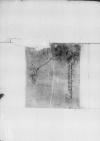Letter #6347
Sigismund I Jagiellon to Ioannes DANTISCUS[Brest-Litovsk], 1544-[07]-[15] or 1544-[07]-[16]
| received Elbing (Elbląg), 1544-07-23 Manuscript sources:
| ||||
Text & apparatus & commentaryPlain textText & commentaryText & apparatus
Reverendo in Christo Patri, domino
Reverende in Christo Pater, sincere nobis dilecte.
Quod tam alacri animo Paternitas Vestra ea, quae a nobis mandantur, exsequitur, nullum cuiusquam odium formidans, est nobis id vehementer gratum, ac gratia nostra regia hanc illius inserviendi nobis promptitudinem Paternitati Vestrae conabimur compensare. Legit nobis, quae in schedis paper damaged⌈[dis]dis paper damaged⌉ scripta fuerunt, reverendus in Christo pater, dominus
Quae bene valeat paper damaged⌈[at]at paper damaged⌉.
Dat(ae) paper damaged⌈[Dat(ae) paper damaged, possibly Dat(um)⌈DataeDat(ae) paper damaged, possibly Dat(um)⌉]Dat(ae) paper damaged⌉ anno Domini M-o D-o XLIIII-o, regni nostri anno XXXVII paper damaged⌈[nno XXXVII]nno XXXVII paper damaged⌉.
Ex mandato regiae maiestatis proprio


 BCz, 1601, p. 496
BCz, 1601, p. 496